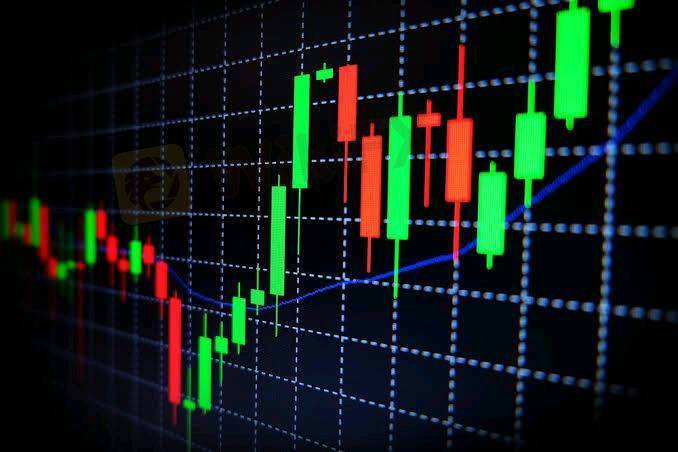
2025-01-20 23:02
IndustryGeopolitical Events and Their Effects on Forex
#firstdealofthenewyearFATEEMAH
Geopolitical Events and Their Effects on Forex Volatility: A Comprehensive Look.
Geopolitical events significantly shape forex market volatility by affecting investor sentiment and causing currency fluctuations. To excel in forex trading, understanding these effects is vital. Let's examine how geopolitical events influence currency movements:
Market Mood: Geopolitical incidents can swiftly change investor sentiment, resulting in substantial price shifts in currency markets. Positive developments may enhance confidence and encourage risk-taking, whereas negative events can drive investors towards safe-haven currencies, such as the US dollar or Japanese yen.
Investment Trends: Political instability can disrupt capital flows, impacting currency values. Trade disputes or crises may discourage foreign investments, putting pressure on affected currencies. Conversely, improved relations can attract investments, bolstering the involved currencies.
Central Bank Policies: Geopolitical events can shape central bank decisions, subsequently affecting currency values. Amid uncertainty, central banks may adopt supportive policies like lowering interest rates or implementing quantitative easing measures, potentially weakening the currency.
Safe-Haven Demand: During geopolitical turmoil, investors often turn to safe-haven assets such as gold, government bonds, and safe-haven currencies, raising their prices. This flight to safety can trigger currency movements as investors seek to protect their capital from volatility.
Commodity Price Changes: Geopolitical tensions can disrupt commodity supplies and cause price fluctuations. Since many currencies are closely tied to commodity markets (e.g., the Australian dollar and Canadian dollar), these price changes can impact currency values.
To manage geopolitical-driven volatility effectively, forex traders should stay updated on global developments, modify their strategies accordingly, and practice efficient risk management techniques like diversification and setting appropriate stop-loss levels. By understanding the complex relationship between geopolitics and currency movements, traders can better navigate the rapidly evolving forex market.
Like 0

FX1599903219
Trader
Hot content
Industry
Event-A comment a day,Keep rewards worthy up to$27
Industry
Nigeria Event Giveaway-Win₦5000 Mobilephone Credit
Industry
Nigeria Event Giveaway-Win ₦2500 MobilePhoneCredit
Industry
South Africa Event-Come&Win 240ZAR Phone Credit
Industry
Nigeria Event-Discuss Forex&Win2500NGN PhoneCredit
Industry
[Nigeria Event]Discuss&win 2500 Naira Phone Credit
Forum category

Platform

Exhibition

Agent

Recruitment

EA

Industry

Market

Index
Geopolitical Events and Their Effects on Forex
 Bangladesh | 2025-01-20 23:02
Bangladesh | 2025-01-20 23:02#firstdealofthenewyearFATEEMAH
Geopolitical Events and Their Effects on Forex Volatility: A Comprehensive Look.
Geopolitical events significantly shape forex market volatility by affecting investor sentiment and causing currency fluctuations. To excel in forex trading, understanding these effects is vital. Let's examine how geopolitical events influence currency movements:
Market Mood: Geopolitical incidents can swiftly change investor sentiment, resulting in substantial price shifts in currency markets. Positive developments may enhance confidence and encourage risk-taking, whereas negative events can drive investors towards safe-haven currencies, such as the US dollar or Japanese yen.
Investment Trends: Political instability can disrupt capital flows, impacting currency values. Trade disputes or crises may discourage foreign investments, putting pressure on affected currencies. Conversely, improved relations can attract investments, bolstering the involved currencies.
Central Bank Policies: Geopolitical events can shape central bank decisions, subsequently affecting currency values. Amid uncertainty, central banks may adopt supportive policies like lowering interest rates or implementing quantitative easing measures, potentially weakening the currency.
Safe-Haven Demand: During geopolitical turmoil, investors often turn to safe-haven assets such as gold, government bonds, and safe-haven currencies, raising their prices. This flight to safety can trigger currency movements as investors seek to protect their capital from volatility.
Commodity Price Changes: Geopolitical tensions can disrupt commodity supplies and cause price fluctuations. Since many currencies are closely tied to commodity markets (e.g., the Australian dollar and Canadian dollar), these price changes can impact currency values.
To manage geopolitical-driven volatility effectively, forex traders should stay updated on global developments, modify their strategies accordingly, and practice efficient risk management techniques like diversification and setting appropriate stop-loss levels. By understanding the complex relationship between geopolitics and currency movements, traders can better navigate the rapidly evolving forex market.
Like 0
I want to comment, too
Submit
0Comments

There is no comment yet. Make the first one.

Submit
There is no comment yet. Make the first one.